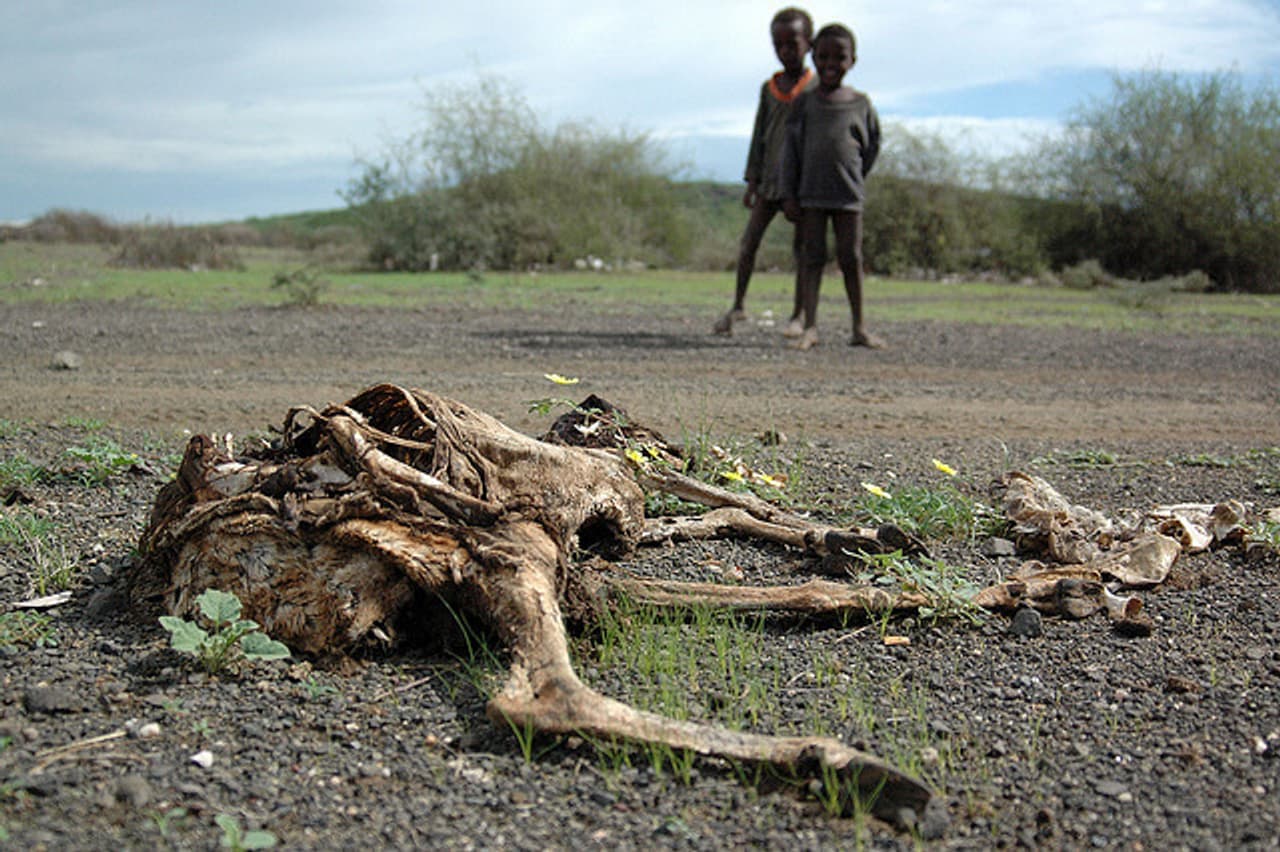
Voices of the oppressed
In the Southern Regions of Ethiopia the rains came late and crops have not yet matured. Millions are suffering from starvation and malnutrition as a result.
The Bureau visited some of the more remote villages in the south. This is what people there told us:
*All names have been changed to protect identities.
The farmer
‘Negasi’ is a farmer who opposed the government.
‘There is no problem that does not exist in our country. Because we oppose, we are not allowed to live in our country. We cannot migrate because we do not have the strength. We want to die but death will not come our way.
‘Because of our political views we face great intimidation. We are denied the right to fertilizer and seeds because of political ideology. Many have changed their political allegience. If a wife is a follower of the ruling party and the husband is opposition, they try to force them to divorce, even people who have converted. When we are campaigning we are jailed with no grounds.
It is a matter of chance if we live or die.’
‘Yenee’, widow
‘Because of this intimidation from local authorities we are even being abandoned by our relatives. They tell them not to contact us or get involved with cultural, social traditions. We are abandoned not just by the government but by the local community.
‘If I were to support the ruling party – my mind would not accept it. I would prefer to die than live this kind of life.’
Drought pool – Flickr/aheavens
The village elder
One village elder described how his village is not receiving desperately needed aid.
‘In other areas their luck is that their land is fertile so they have good harvests. Our area is very crowded, overpopulated. In this area there is no aid from the UN or foreign donors. No support at all.
‘There was some intervention from the government in the last years, but this year there is no support or aid from the government. They say they cannot afford more than this, that this is above capacity and that they did their best, but now they cannot go to other donors to get more.’
The widow
‘Yenee’ is a widow who alone must care for her seven children.
‘If I were to support the ruling party- my mind would not accept it. I would prefer to die than live this kind of life.’
‘Negasi’, farmer
‘The situation is desperate. It is frustrating. Apart from the grace of god we are living. There is nothing we can do. We have been abandoned.’
She told us that if the children cannot go out and ‘do their business begging’ the family would have nothing. They rely totally on what the children are given.
‘It is a great problem. It is desperation. It is a matter of chance if we live or die.’
The young mother
We met a woman on the edge of a village, sitting, listless, with a child in her lap.
‘When the men work, the responsibility for the child falls to me. But I am also hungry and sick.
‘This year there is no support or aid from the government.They say they cannot afford more than this, that this is above capacity’
‘Getachew‘, village elder
‘The problem is that no cows are giving milk. The famine this year has been a great problem. There are no reserves of food. We are just waiting for the coming harvest. We are just hoping.
‘If we only have one meal a day we will survive until the harvest. Beyond that there is no help for us.’
The Opposition supporter
A group of village elders who have been alienated by Zenawi’s regime told us how they live in fear for their lives. We met in a secret location, in scrub land on the edge of a remote village.
‘The government is only interested in the election, how many votes it is getting. It cares only for the rich farmers, the imams, officials and businessmen. It does not care about people like us. It just wants to count its ballots. Every five years an election takes place. They care for those who vote for them.
‘If we only have one meal a day we will survive until the harvest. Beyond that there is no help for us.’
‘Makeda’, young mother
‘They only give to the rich and mighty. Fertilizers and good seeds are only given to those in good favour. The poor never get anything.
‘We registered for aid, but they told us we were late. That is the only reason they gave.
‘Due to my political view my land has been taken away. My children are dispersed. The clothes that I wear are provided by my relatives living abroad. They took away my farm land, it went to the local authority – the only judge as such. I’m only surviving by working on other people’s farms.
‘There is great frustration. We are only living by the grace of god.’
To be kept up to date on this and other stories from the Bureau, please subscribe to our newsletter by clicking here.





